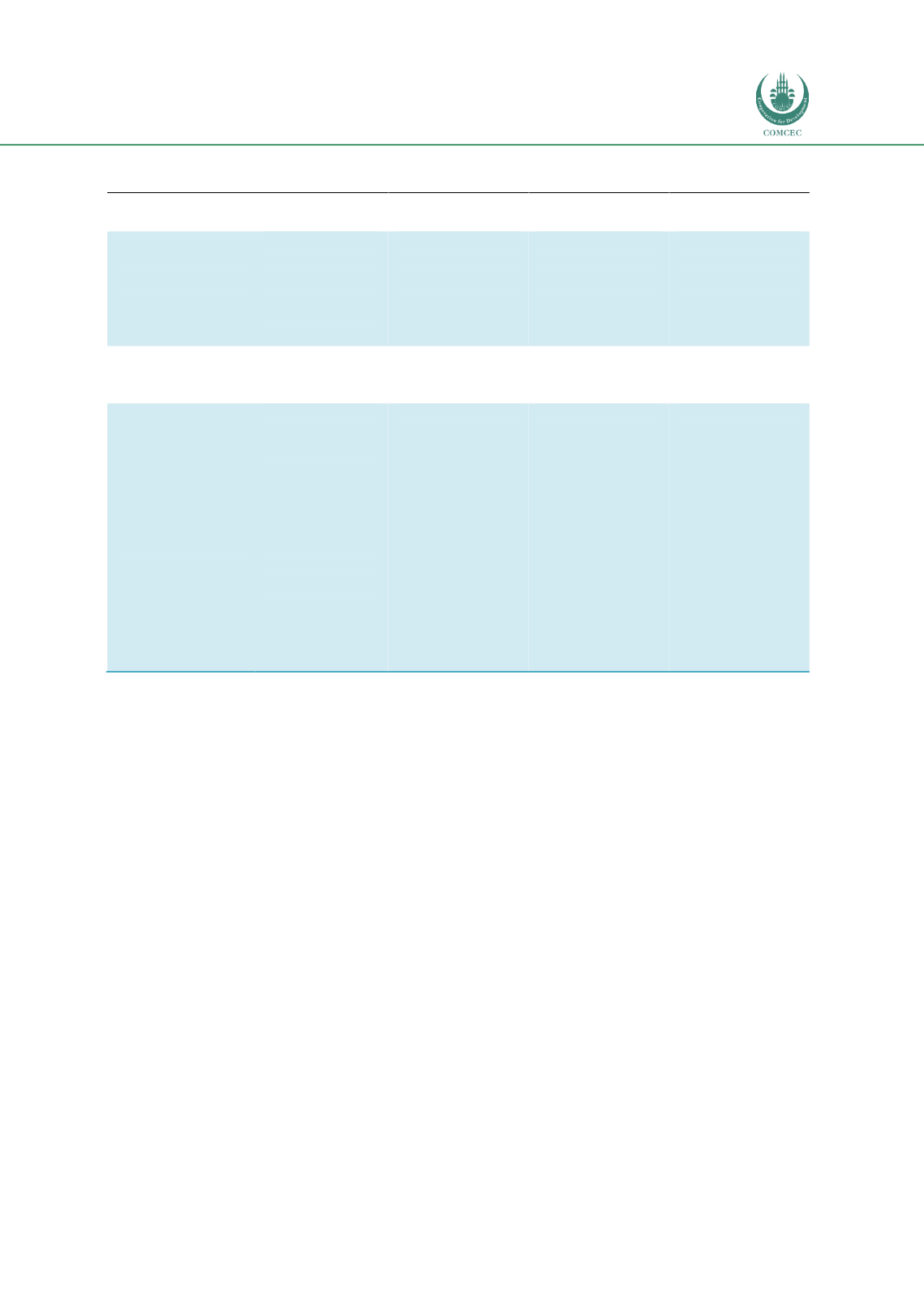

The Role of Sukuk in Islamic Capital Markets
41
Table 3.2: Shariah Contracts under AAOIFI Shariah Standards on Investment Sukuk
Sale-based
Leased-based
Agency-based
Partnership-
based
Others
Murabahah –
Mark-up sale
Ijarah –
leasing of
property or
usufruct
pursuant to a
contract
Wakalah bil
istithmar –
investment
agency
Mudarabah
–
profit-sharing
and loss-
bearing
Muzara’ah
–
share-
cropping
Istisna’ –
manufacturing
sale
Musharakah
– profit and
loss sharing
Musaqah
–
irrigation
Salam –
forward sale
Ijarah
muntahiah bi
al-tamlik –
a
leasing
contract
which
includes a
promise by
the lessor to
transfer
ownership of
the leased
property to
the lessee
Mugharasah
–
agriculture
Source: AAOIFI (2015)
As part of a sukuk transaction, a
fatwa
(or legal pronouncement) is usually procured from
Shariah scholars, to provide issuers and investors with the comfort that a sukuk instrument is
indeed Shariah-compliant. However, these endorsements are subject to different
interpretations, and differences in opinion can create volatility. Since doubts about Shariah
compliance are likely to affect marketability, a guiding set of principles which the majority of
Shariah advisors can agree upon should be developed. On 7 February 2017, the AAOIFI
announced a new exposure draft for a centralized Shariah board. With industry practitioners
calling for greater standardization, this initiative marks another milestone in embracing a
centralized model, which will further strengthen the Islamic finance ecosystem and increase
consumer appetite fo
r Shariah-compliant products.
The Malaysian and Indonesian governments have progressed to address this problem at the
national level, by establishing a centralized Shariah supervisory board to ensure that every
sukuk issued fully complies with nationally accepted Shariah principles. In comparison, the
GCC operates in an industry-driven environment, where each Islamic financial institution is
guided by the views and opinions of its own Shariah advisory board. Based on market
feedback, approval of a sukuk structure may not necessarily be viewed the same way by
another Shariah scholar. Hence these differing interpretations and opinions have to some
extent affected the progress of sukuk issuance in the GCC. In 2016, the UAE Cabinet approved
the establishment of a Shariah authority to set the standards for Islamic finance products, as a
means of providing a standardized approach to product development and setting the rules and
principles for banking transactions.
















